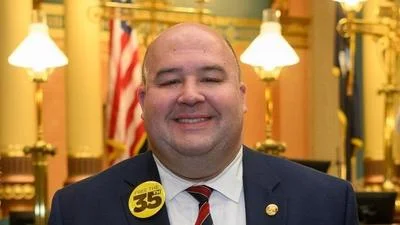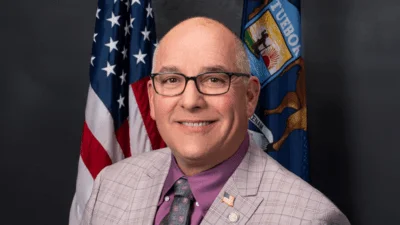Sandy K. Baruah President and Chief Executive Officer at Detroit Regional Chamber | Twitter Website
Sandy K. Baruah President and Chief Executive Officer at Detroit Regional Chamber | Twitter Website
A survey has drawn criticism for suggesting that downtown Salt Lake City might face a decline similar to Detroit if a proposed sports and entertainment district is not developed. The survey, which was commissioned by an undisclosed client, included a question warning that Salt Lake City could become "an empty shell" like Detroit if companies stopped investing.
Critics have described the survey's language as "hilarious fearmongering," arguing it unfairly uses outdated stereotypes about Detroit. The controversial question asked respondents how significant this scenario would be in shaping their opinion about the project.
The survey was reportedly conducted with Y2 Analytics and Clear Insights, according to KSL.com. A partner at Y2 Analytics explained to KSL.com that the survey is part of a message testing study designed for an unnamed client. However, Y2 Analytics did not respond to Axios' request for comment. Both Smith Entertainment Group and Salt Lake City, who are behind the proposed district agreement, deny any involvement with the survey.
Contrary to the implications of the survey, Detroit has seen economic growth following its bankruptcy, partly due to the opening of Little Caesars Arena in 2017. Devon O'Reilly from the Detroit Regional Chamber stated that the situation in Detroit is "the exact opposite" of what the survey suggests. He noted that while other cities are dealing with office vacancies post-COVID, Detroit's decision to build Little Caesars Arena helped pivot its downtown toward residential development.
Current developments in downtown Detroit represent over $2.7 billion in investments, with hundreds of new residential units either completed or under construction.
In recent developments related to Salt Lake City’s proposed district, the city council approved a plan involving a .5% sales tax increase to finance the project. This includes up to $900 million in bonds for Smith Entertainment Group (SEG) to fund renovations accommodating local sports teams such as the Utah Jazz and Utah Hockey Club. The city plans to recoup these funds through tax revenue over 30 years.





 Alerts Sign-up
Alerts Sign-up